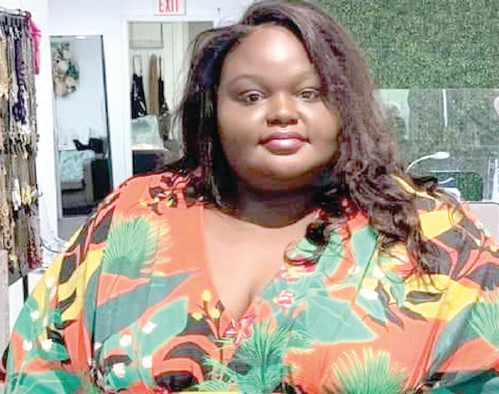Oceans apart; therapy is healing my strained bond with my children has brought my children and I closer

The decision to move abroad in search of greener pastures was a tough one for Diana Rose. Despite the fact that her husband took an active role in raising her children and was okay with her travelling, the mother of three had frequent communication with her children, and made sure that their lives were comfortable.
“My youngest child was aged six, while my first born daughter was 13. I employed a nanny, a house manager and a cook who ensured that my children ate proper meals while I was away. My husband, too, was present and ensured that I had regular communication with my children from time to time and that I was up to date with what was going on in their lives,” she narrates.
Sadly, her husband passed away in 2021 while Diana was in the process of taking her children abroad. Despite the constant communication that they had, Diana noticed that her children acted distant when chatting with her.
“They kept on asking me when I was coming home. At some point, they got angry and then they rebelled. They stopped calling me and even when we talked, they were not as vibrant and they became distant. My first daughter was, however, understanding and would encourage her siblings to talk to me,” she continues.
Reunited, but distant
The children were finally able to join her abroad last year. Diana noticed that they were withdrawn, angry and still had some bitterness. They questioned her on why she never came back for them and why she was not there during her husband’s funeral. Trying to make them understand why she couldn’t fly back to Kenya in time for funeral didn’t work. Her eldest daughter, who is pursuing a course in psychology, was instrumental in convincing her siblings to understand their mother’s situation.
Diana also desired to have her children learn how to cope in a different environment abroad. “My son who was only six years old is now a teenager. When they came, I noticed a huge disconnect between us. They had just lost their father and were still in mourning. I, therefore decided that we go for family therapy to not only close the gap between my children and I, but also grieve the loss,” narrates Diana.
Although therapy has various benefits such as assisting children in dealing with grief, many people shy away from such due to ignorance. Some see paying for such services as a waste of money.
“The first thing is to acknowledge that you need help. Identify your issues, and also what people around you tell you about yourself that need change. In my case, I realised that a child that I left at six years of age is not the same one that I met after six years. The second step is look at your finances and whether you can afford it. The third step is to ensure that everyone is on board with the plan because you can’t force people to go for therapy,” she shares.
For Diana, no price was too high for her to have a beautiful relationship with her children and to heal from the pain of losing her husband. She at first, talked to her children on the benefits of therapy and why they needed to go for one. As she recalls, their first session was a tough one as they had to cry out the feelings that they had bottled up inside.
Offloading pain
“We were all crying and blaming each other for our mistakes and my children were blaming me for leaving them. We were going through all this pain in the midst of the grief of losing a husband and a father. The therapist prioritised us to separate our issues first; The grief from the failed parent and the grief for the loss,” she explains.
Her therapist also helped her admit to her children why she had not been around and why she ‘failed’ them.
“That acknowledgement brought a new chapter in the relationship between me and my children,” she says.
It’s now one year since they began therapy and despite the progress in their relationship, she still feels that they are not yet there.
Sometimes, time never heals
“As long as my children still ask these questions and are still disturbed by issues, we will still go for help. Every time something pops up, I have to pay attention and be alert to know where that came from. I also try not to solve everything on my own, especially if it’s tough. When I identify things that I can’t handle, I leave it to the professionals,” she says.
Psychologist Elmard Reagan says children whose parents have been away for a long period need therapy to reconnect with them. This is especially so, if the parent notices that their thinking is distorted or they have strange behaviour such as anxiety or withdrawal.
“Don’t assume that they will be fine because sometimes time never heals. Going for therapy with the child helps— they get help and they feel supported in the process,” he advises.
Diana is happy that her relationship with her children has improved and that they have bold conversations in critical issues about life. It inspired her to start a podcast African Vaginas and is writing a book, which will be released later in November on sex education amongst teenagers.
“I’m glad at how far we have come with my children. We now cook together, do grocery shopping together and talk boldly about issues. Watching the issue of racism in America on TV has helped them realise that it is in the family, where they will be protected and this has pushed us to be closer,” she says.












